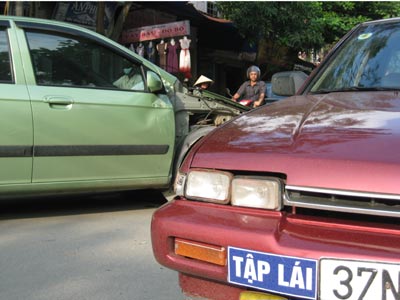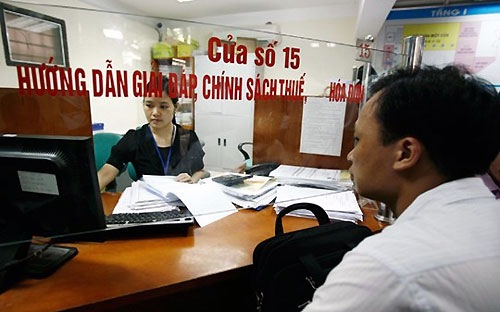According to the roadmap in the period of 2011-2015, the entire country had 478 enterprises proceed with equitization, significantly contributing to the completion of the objectives of the state-owned enterprise restructuring process.
The number of State-owned Groups and Corporations with large-scale capital that has been equitized has increased, including enterprises in aviation, textiles, and banking sectors. The public auction of the initial shares of equitized enterprises has continued to attract investors, promoting the development of the stock market. With a competitive auction mechanism, the value of enterprises has been fully assessed and more aligned with the market…
According to general evaluations, enterprises after equitization and restructuring clearly work more efficiently Decree 59/2011/ND-CP, Decree 189/2013/ND-CP and Decree 116/2015/ND-CP on equitization issued in recent times have fundamentally promptly resolved the obstacles and difficulties in the equitization of state-owned enterprises (SOEs), promoting the SOE restructuring process, focusing on Economic Groups and State Corporations in line with the Party and Government’s policy. However, according to a report from the submission presented by the Government of Vietnam to the National Assembly on the necessity of issuing a decree regulating the conversion of state enterprises with 100% charter capital into joint-stock companies, after a period of implementation of Decree No. 59/2011/ND-CP, certain shortcomings have emerged. Specifically, according to the submission:
Several provisions in Decree 59/2011/ND-CP need to be reviewed and adjusted to be compatible with newly issued and effective legal documents such as: Enterprise Law 2014, Investment Law 2014, Law on Management and Use of State Capital Invested in Manufacturing and Business Activities in Enterprises…
Certain stages in the process remain non-transparent: the proportion of state shares held is still large in many enterprises; some medium to large-scale enterprises with complex financial situations and operations in specific sectors have prolonged equitization timelines; some enterprises allowed to apply special mechanisms during equitization by the Prime Minister of the Government of Vietnam, but specifics have not been clearly regulated (such as the use of re-evaluated state capital results as the basis for setting the starting price without adjusting accounting books in Vietnam Airlines Corporation, Rubber Industry Group, Tan Bien Rubber Company…); the mechanism of selling shares to strategic investors is still inadequate as they are required to maintain their stake for 5 years, yet there are no regulations on handling strategic investors who fail to meet their commitments.
Therefore, the Government of Vietnam has developed and is seeking opinions on the Draft Decree with 7 Chapters and 51 Articles regulating the conversion of state-owned enterprises holding 100% charter capital into joint-stock companies. Notable points of the draft include:
One of the persistent issues of post-equitization enterprises is that over 80% of managerial positions remain unchanged from pre-equitization. Especially, no enterprise has hired an executive director, and the supervisory board’s activities are not effective. While equitization aims to “renew blood” and reorganize the system, the reality is still “old wine in a new bottle.” Whether this is due to the reluctance of workers and investors towards management or due to the general structure is unclear. The draft decree also addresses this issue, proposing policies to encourage employees to purchase shares.
Preferential Policy for Employees at Equitized Enterprises
As stipulated in Article 48, Clause 1 Decree 59/2011/ND-CP, employees listed regularly in the enterprise’s workforce at the time of the enterprise valuation announcement are entitled to purchase up to 100 shares for each year of actual work in the state sector at a price equal to 60% of the lowest successful auction price (in case of public auction) or 60% of the lowest successful price for strategic investors (in case of sale to strategic investors). Additionally, Clause 10, Article 1 of Decree 116/2015/ND-CP stipulates the prior sale of shares to employees and labor unions at 60% of the starting price in the approved equitization plan, with the difference between the selling price and the nominal value deducted from the state capital.
Thus, essentially, the State provides a 40% discount on the value of one share for employees based on the auction or starting price results. This preferential sale process must wait for the auction results, and if the auction value is high, employees also have to pay a significant amount to purchase shares.
Moreover, according to current regulations, only employees at the Parent Company are entitled to preferential share purchases when the Parent Company is equitized. Recently, the equitization of Parent Company – Economic Groups, and State Corporations, which includes limited liability companies wholly owned by the Parent Company, resulted in employees at subsidiaries not being able to enjoy the preferential share purchase policy at other enterprises, nor at the Parent Company. The equitization of a company does not change its enterprise type at one-member limited liability companies but fundamentally changes ownership. Hence, the draft decree proposes adjustments to extend the preferential share purchase policy to employees at subsidiaries who have not yet received such benefits at other enterprises, similar to employees at the Parent Company when the entire Economic Group, State Corporation is equitized (this content was approved by the Prime Minister of the Government of Vietnam for Vietnam Rubber Group, in Official Letter No. 2409/VPCP-DMDN dated April 6, 2016).
To simplify procedures while still facilitating employees holding shares in post-equitization enterprises, the draft decree proposes that employees listed regularly at the enterprise at the time of enterprise valuation determination (including employees at subsidiaries wholly owned by the Parent Company – tier II enterprises – who have not yet enjoyed preferential share purchase policies at other enterprises) shall be entitled to purchase up to 100 shares for each actual working year in the state sector at a selling price of 60% of the nominal value per share (10,000 VND/share), with the preferential value deducted from the state capital upon financial settlement, and employees need to pay 60% of the nominal share price.
See detailed content of the Draft Decree here.
 Article table of contents
Article table of contents





.Medium.png)
.Medium.png)
.Medium.png)
.Medium.png)
